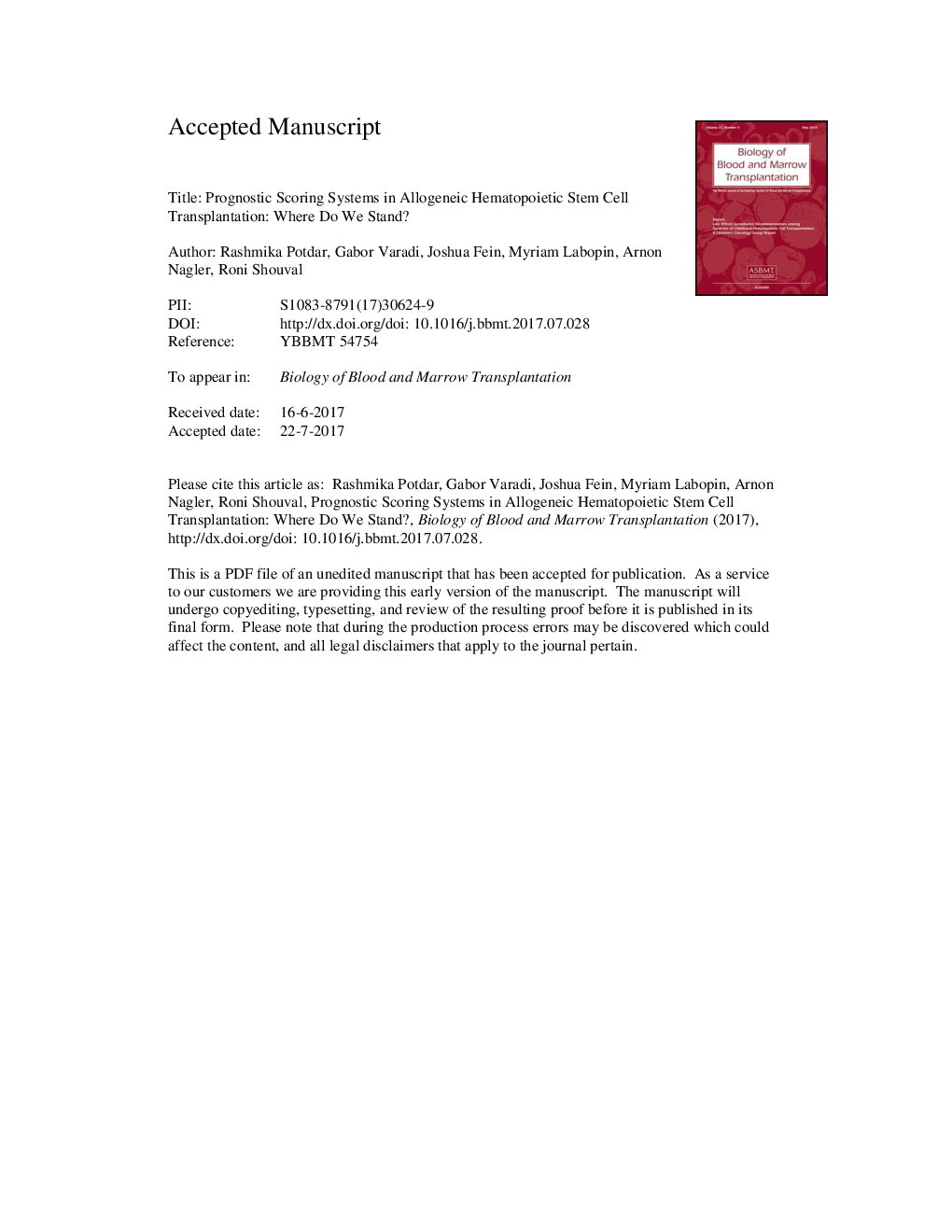| Article ID | Journal | Published Year | Pages | File Type |
|---|---|---|---|---|
| 8430797 | Biology of Blood and Marrow Transplantation | 2017 | 31 Pages |
Abstract
Allogeneic hematopoietic stem cell transplantation is a potentially curative treatment for many hematologic disorders. Maximizing the benefit of transplantation for disease control while minimizing the risk for associated complications remains the field's leading challenge. This challenge has prompted the development of multiple prognostic scoring systems over the last 2 decades. Prognostic scores can be used for informed decision making, better patient counseling, design of interventional trials, and analysis of prospective and retrospective data. They are also helpful in treatment allocation and personalization according to predicted risk. A better understanding of the molecular and cytogenetic features of the disease, along with the advent of novel therapies, has increased the need for reliable prognostication of which patients will benefit most from transplantation. Here we review the clinical role of the prognostic systems currently in clinical use, examining both their strengths and their limitations.
Related Topics
Life Sciences
Biochemistry, Genetics and Molecular Biology
Cancer Research
Authors
Rashmika Potdar, Gabor Varadi, Joshua Fein, Myriam Labopin, Arnon Nagler, Roni Shouval,
